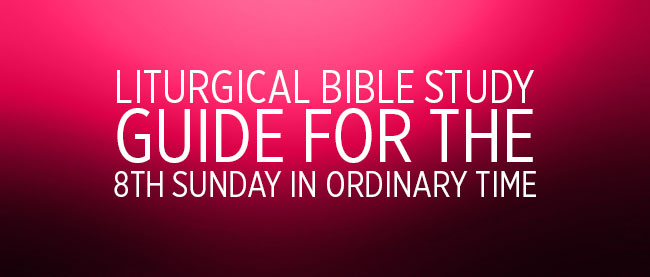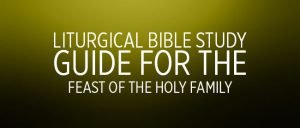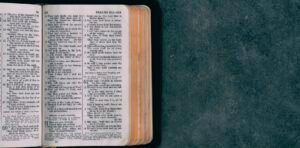1st Reading – Sirach 27:4-7
In the Greek version of the Bible, the first title of this book was “The Wisdom of Ben
Sirach,” but from the time of Saint Cyprian, early in the third century, the Latin title
Ecclesiasticus, meaning “church book”, was used. It received this title from the fact that,
after the Psalms, it was the book most used in the liturgy; in fact, in the early Church it was a kind of official catechism used in the catechumenate.
The author of the book is named in 50:27 as “Jesus, son of Eleazar, son of Sirach” (in
Hebrew: Yeshua Ben Eleazar Ben Sira.
Sirach was originally written in Hebrew, as the Greek translator (the grandson of
the original author) says in the prologue. (Sirach is the only book in the Bible which
contains a translator’s prologue which, while not inspired writing, is always included.)
Saint Jerome was acquainted with the Hebrew text, which was used up to the Middle Ages. In the 11th century the Hebrew disappeared and could not be used again until about 2/3rds of it was discovered in an old synagogue in Cairo in 1896.
According to the prologue and other passages in the book, the inspired author was a
learned scribe, a humble and zealous man, who lived in Jerusalem. From an early age he had meditated deeply on sacred Scripture. As an adult he was an energetic traveler and always kept his eyes and his soul open to test “the good and evil among men.” He
eventually settled in Jerusalem, where he opened a school to give moral and civic education to all comers; there, under the inspiration of God, he wrote this book. His grandson – the Greek translator – arrived in Egypt in 133 B.C. He began his translation in 132 B.C., working from the Hebrew text, which was probably written prior to 170 B.C.
As happened with all the wisdom books of the Bible, the Greek translator puts
special emphasis on the practical purpose of Sirach. Firstly, he advises everyone to live in accordance with divine Law, which should be the highest rule and main aspiration of man’s behavior. But as he says in the prologue, Ben Sirach wanted to write this book for those living abroad “who wished to gain learning, being prepared in character to live according to the law.”
This book played an important part in shaping the faith of the Jewish people; to
equip them to cope with the imminent menace of Hellenism, which ran completely counter to the monotheism of the people of the Old Covenant.
When the Hebrew canon of scripture was formed (around A.D. 90), Sirach was omitted. We must recall that it appears that the criteria for inclusion in the canon were:
1) Must have been originally written in Hebrew
2) Must have been written prior to 400 B.C.
3) Must be of good moral character.
This book fails the second criterion. Because it was not included in the Hebrew canon, the Protestant Bible does not contain the book of Sirach
2nd Reading – 1 Corinthians 15:54-58
For the past two weeks we have heard Saint Paul talk of the reality of the
resurrection for all of us; as demonstrated by our older brother, Jesus. Today we hear Paul end his discussion of the resurrection of the dead with a hymn of triumph over death. This will also end our study of 1st Corinthians for this cycle, except for one hearing on Pentecost Sunday.
Gospel – Luke 6:39:45
Today we complete a teaching which was begun two weeks ago – the sermon on the
plain. We began with the beatitudes and curses, and last week we heard that we are to love our enemies. This week we hear Jesus’ teaching on uprightness of heart.





